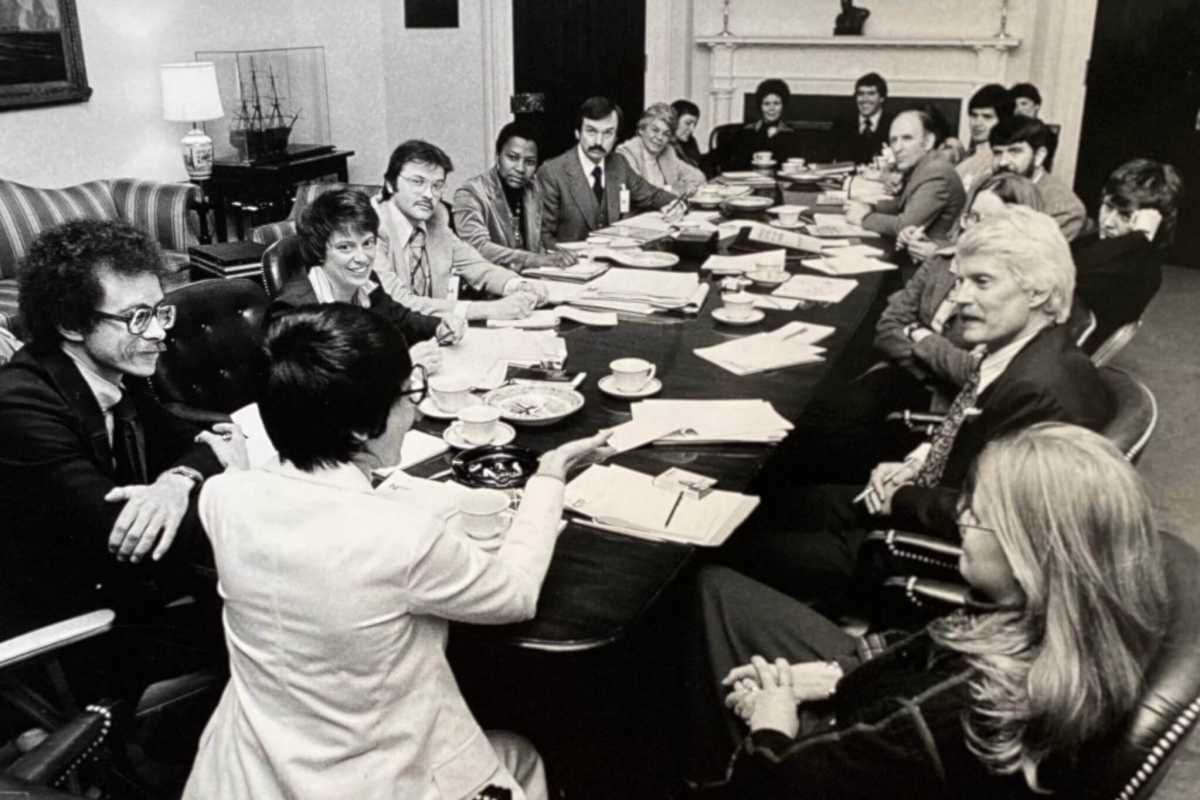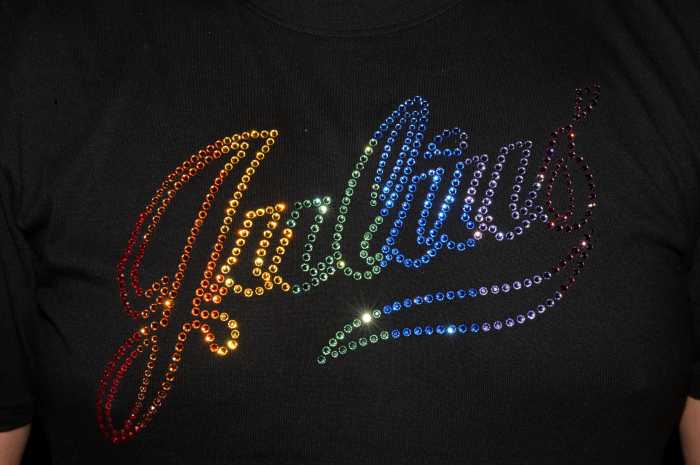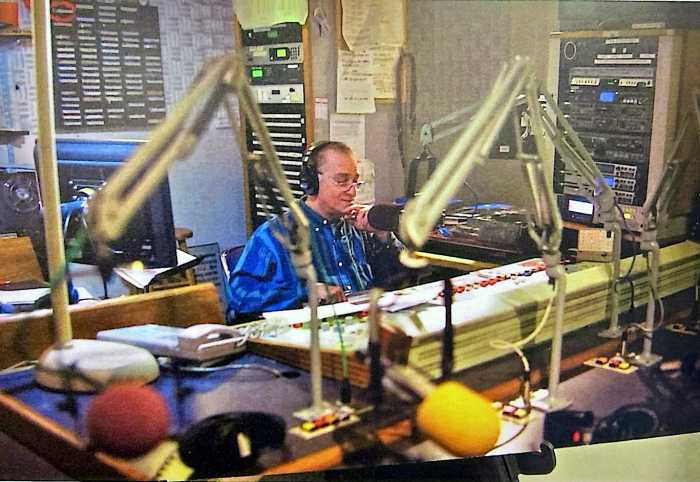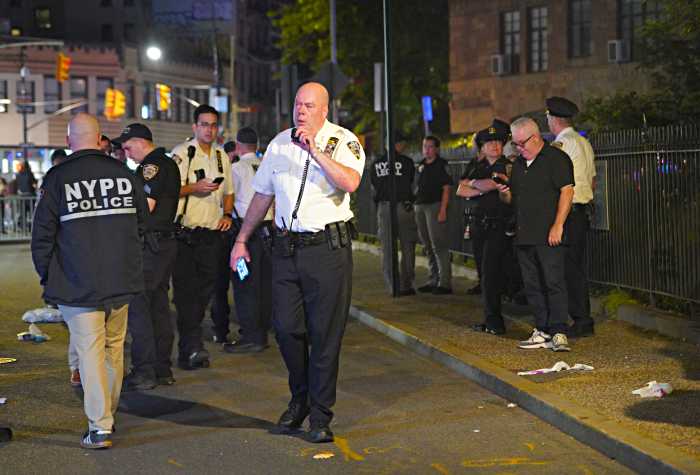The nation’s longest-running major LGBTQ rights advocacy organization, the National LGBTQ Task Force, turns 50 this year. The organization celebrated its 50th anniversary in Miami on October 14.
The celebration was attended by more than 700 people and raised more than $750,000 for the Task Force and local South Florida organizations, according to an October 15 news release from the Task Force.
Model, author, and “Pose” star Dominque Jackson joined Constance Collins, who is founder and president of the Lotus House Women’s Shelter in Miami, as honorees at the event.
The gala was co-hosted by performer Latrice Royale and award-winning actor, singer, filmmaker, writer, and dancer Dyllón Burnside. At Midnight, attendees celebrated the official anniversary of the National LGBTQ Task Force at the Afterglow afterparty, with a champagne toast, according to the release.
Task Force executive director Kierra Johnson, a Black bisexual woman, led a moment of silence for the victims of the Hamas terrorist attack.
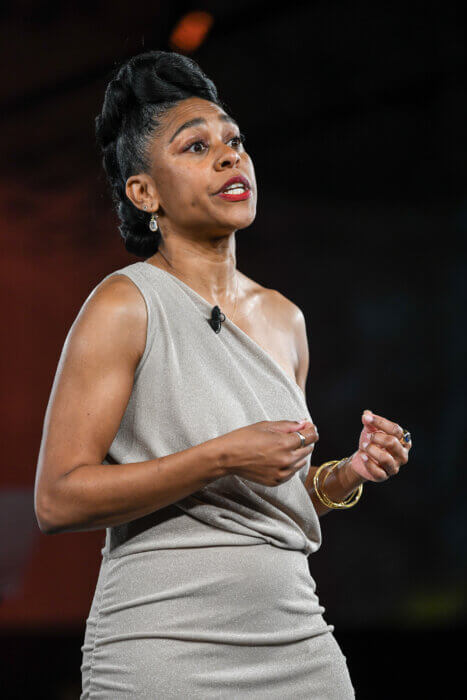
in Israel and all those impacted, and condemned the terrorism, violence, and harm against civilians.
“The dehumanization of the ‘other,’ both discursively and rhetorically, often leads to actual, material violence felt by communities with the least amount of power and resources,” Johnson said. “Many forms of violence are rooted in ‘othering’ what is unknown or less powerful. The resulting harm is very real violence.”
“Being ‘othered’ and the fear that comes with that othering is something LGBTQ people are far too familiar with,” she said before launching into celebrating the Task Force’s golden anniversary and looking toward its next 50 years.
“Tonight, we celebrate 50 years of impact and to honor people who have been on the front lines fighting for queer liberation,” she said, noting that the organization is “laser-focused on envisioning the next 50 years of action — and what we need to do to secure our wins, expand civil liberties for our communities, and fortify our democracy.”
This year marked the 46th anniversary of the historic day in 1977 when Margaret Constanza, who worked in the Jimmy Carter administration, coordinated a meeting with the Task Force to discuss discrimination in the federal workforce.
Earlier this year, the Task Force’s Creating Change also marked its 35th anniversary of the conference in San Francisco.
The Task Force lost founding and key leaders and members who made historic contributions to the organization’s and the LGBTQ movement’s advancement this year. Founding member Achebe Betty Powell died February 21 of COVID-19. Creating Change co-founder and the Task Force’s first female executive director, Urvashi Vaid, died May 14 due to recurring cancer.
The Task Force also lost key past staff and members who made significant contributions. Ivy Young, the Task Force’s first director of the Family Project launched in 1989, died April 24, according to a May 22 news release from the organization. Task Force member Pat Norman, who co-chaired the National March on Washington for Lesbian and Gay Rights in 1987 and National March on Washington for Lesbian, Gay, and Bi Equal Rights and Liberation in 1993, died August 5, reported the Bay Area Reporter.
Early days
Founded as the Gay and Lesbian Task Force in 1973 in New York City, the organization has advanced the rights of LGBTQ people for five decades. Its first headquarters was located at 80 Fifth Avenue in New York City from 1973 to 1986 when the organization moved to Washington, DC, according to the NYC LGBT Historic Sites Project. The Task Force has fought many key issues, including the effort to remove homosexuality as a mental illness from the American Psychiatric Association, the HIV/AIDS crisis, transgender rights, supporting the queer vote, LGBTQ service members serving openly in the military, and marriage equality.
Early Task Force member Charlotte Bunch, a 78-year-old lesbian, told Gay City News that the late Barbara Love insisted the organization’s board be 50% women. Love recommended her to join the board of the organization then known as the Gay and Lesbian Task Force. The founding board was made up of mostly men initially. By mid-1974, the Task Force’s board was 50/50 men and women.
It was “very important” that the men responded positively to Love’s request, Bunch said. The gay men at that time acted and created a cornerstone of the organization, with a leadership structure of 50/50 men and women that it has maintained ever since.
Bunch served on the Task Force’s board for two terms from 1974 to 1982. She is proud of the work she and others did in the early years of the Task Force.
“I was very happy to be recruited to the board,” she said. “I wanted to kind of get a sense of what the national gay movement was gonna look like.” She noted that the gay men at the time recruited “strong feminists,” from the LGBTQ and women’s movements at the time, like herself and Barbara Gittings.
Bunch was also a part of the organization’s first Women’s Caucus, which headed up the Lesbian Caucus at the 1977 National Women’s Conference in Houston, Texas. The late Jean O’Leary, a Task Force founding member, orchestrated the telephone tree connecting feminist and lesbian activists around the country updating them with news from the conference, Bunch recalled.
One of the Task Force’s major debates in the early LGBTQ movement, as with many movements event today, was reform versus revolution, she said.
“We may hope [reforms] will ultimately have that effect [of changing the whole system], but we don’t live in a revolutionary world,” she said. “There are very few moments when you actually have an entire overthrow of a system — many of them go very bad.”
Bunch explained that Dr. Bruce Voeller and other founding members of the Task Force chose to create change within the system. Its grassroots connection came from those who were involved in the feminist movement.
“I think [the Task Force] survived because they managed to walk that political space and to connect to Creating Change and other things that they’ve done to the grassroots in a significant way,” she said.
“The Task Force then and now has had a real impact on the world because it brings together progressive thinking with a commitment to concrete, practical change,” said Bunch. who is astounded that the Task Force survived to the half-century mark.
Historic White House meeting
On March 26, 1977, the Task Force made history when 14 gay and lesbian community leaders from across the United States met at the White House at the invitation of Costanza, then an adviser to President Jimmy Carter. George Raya, 73, a gay California legislative advocate, was one of the 14 community leaders who attended the meeting.
Raya is only one of four surviving attendees of that meeting. The other survivors are Bunch, founding director of the Public Resource Center; Elaine Noble, the first out lesbian elected to a State Legislature; and Bishop Troy Perry, founder and first leader of the Metropolitan Community Churches.
“It really was a historic moment,” Raya told Gay City News. “It only happened that one time.”
The other people who attended the meeting were Costanza; Pokey Anderson, co-founder of the Houston Gay/Lesbian Political Caucus; Charles Brydon, who established the LGBTQ business network and luncheon organization, the Dorian Group in Seattle; Marilyn Haft, then-deputy director to the White House Office of Public Liaison; Ray Hartman; William Kelley, who co-founded the Chicago Gay Crusader newspaper and helped organize the North American Conference of Homophile Organizations, the first national gay and lesbian conference in 1966; Frank Kameny, co-founder of the Task Force; Cooki Lutkefedder, founding president of Southern California Women for Understanding, a social and political network for gay career women; Robert Maulsom; Jean O’Leary, who helped create National Coming Out Day; Powell; Myra Riddell, therapist and LGBTQ activist; Charlotte Spitzer; and Voeller, co-founder of the Task Force and public health pioneer.
Raya was assigned to the Department of Health & Human Services and produced a white paper about hepatitis, which was killing people at a high rate at the time despite little to no research or support. Raya recommended more funding for hepatitis research. Raya was criticized for talking about sex at the White House, but in 1978, a three-year Hepatitis research project was funded in San Francisco (1978-80). That research laid a partial foundation for researchers when the HIV/AIDS epidemic hit.
At the time, the meeting was met with negative press. Anti-gay activist Anita Bryant called for Costanza’s resignation, the Bay Area Reporter reported.
“People were not happy with it,” Raya said, “But it put the Task Force on the map. It put the whole gay issue up front. It really made a difference. It started the ball rolling because up to then there was very little coverage of the LGBT community in the newspapers and all the media, period.”
In 1988, the Task Force launched its signature conference, Creating Change, which brings activists to political leaders together to connect, learn, and strategize for organization and movement building.
“For half a century, the National LGBTQ Task Force has been indispensable: leading the charge for freedom, justice, and equality for all,” Congressmember Nancy Pelosi of San Francisco said in a written statement in February.
“I think the significance is that through thick or thin, the Task Force has really always been at the cutting edge of our movement from the time it was founded through today,” Matt Foreman, who led the organization for five years from 2003 to 2008, told Gay City News. During his tenure at the helm, the Task Force established itself in Washington, DC, more than doubled its budget to nearly $10 million, and increased its staff to 54 people. “It’s always focused on the issues at hand [and] the challenges we face. I think it’s very profound that the Task Force is still not only in business but thriving.”
Foreman left the Task Force to become the senior program director of the LGBT Equality Program at the Evelyn & Walter Haas, Jr. Fund in 2008. He led the program for more than 15 years. Last month the AIDS Legal Referral Panel announced Foreman was tapped as the agency’s new executive director.
Today and tomorrow
Today, the Task Force is focused with an intersectional eye on federal policy, the census, voting rights, reproductive justice, non-discrimination, grassroots movements, racism, and faith.
“I fundamentally believe that taking back our democracy, building a democracy as we all deserve, is the most important thing for our community,” said Johnson. “I hope that what we’re planting now, a few years from now, people will say, we are engaged in this democracy at every level in ways we couldn’t have fathomed.”
That commitment to democracy and the seeds being planted can be seen on the Task Force’s new website, which features greater accessibility for users with varying abilities and needs.
“We need the Task Force as much as we did in the 70s,” Bunch said, “and I think it will probably be needed for another 50 years until hopefully, [LGBTQ rights] becomes just a part of everyday life to more and more people.”

